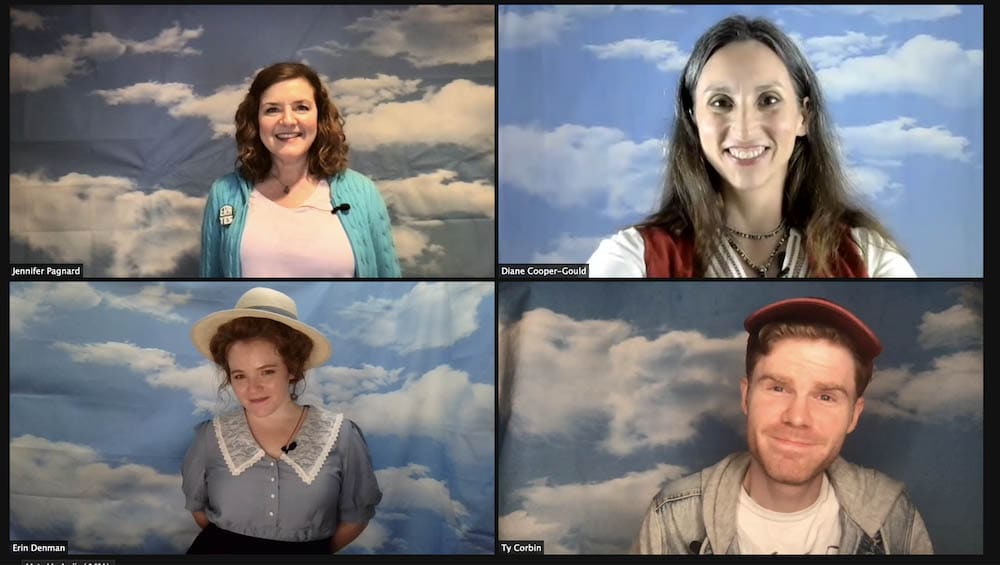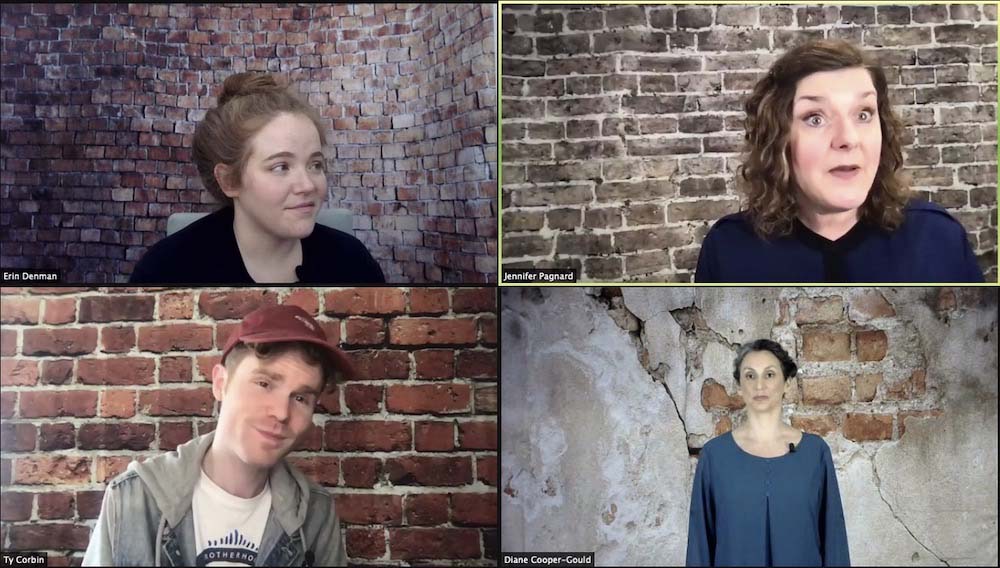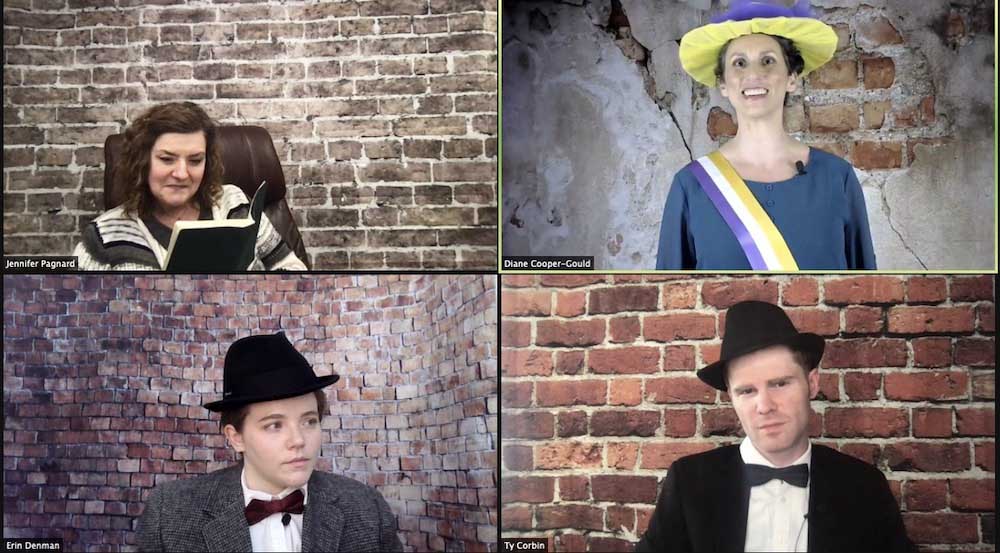A Very Present Presence, written by Ann Timmons and directed by Catherine Tripp, is the latest streaming offering from the women’s collective Pipeline Playwrights. Timmons states that this comedy examines “the theme of social and generational connection: the idea that individual choice is always shaped by experiences of/expectations from the past.”
A Very Present Presence follows middle-aged Alice (Jennifer Pagnard) on a journey of self-discovery that includes ghostly visits from her great-aunt Nell (Diane Cooper-Gould) and time-traveling exploits to the era of her grandmother, Alberta (Erin Denman). Alice’s daughter, also played by Denman, and her son (Nicholas-Tyler Corbin) witness Alice’s reinvention of herself as she realizes that her emptiness and unhappiness have been caused by forces beyond herself that have served to oppress women throughout history.

Pagnard is a believable Alice. Her character is just generic enough to offer an appropriate tabula rasa for the demographic this play will likely resonant the most with. Pagnard brings to the role what is required for the audience to assume her viewpoint, which is just enough to convey the intention of the playwright. Cooper-Gould (as great-aunt Nell) scolds and cajoles Alice until she sees the error of her ways. Denman and Corbin play a variety of bit parts along with their primary roles as Alice’s daughter and son. I was especially impressed with Denman in her role as Alice’s grandmother, Alberta. She conveys the full journey of a naive woman who enters a relationship with an abusive man, shrinks into herself for a time, and still manages to come out of her shell before she dies.
As with many recent productions, this play was created entirely through Zoom, with actors in separate spaces as they interact. Credit must be given to Director Catherine Tripp, Zoom Stage Manager Maggie Landis, and Video Editor Gordon Nimmo-Smith, who managed to pull this off with very little awkwardness. Altogether, A Very Present Presence is an enjoyable adventure for those who are interested in a study of our individual experiences of liberation. Both the acting and production design lend themselves to an interesting one and a half hours of viewing.
This work will be best received by those who can relate to Alice. This is the strength—and the weakness—of the play. I admit that I may not be the exact target audience. The laserlike focus on Alice’s marriage being the primary vehicle for her personal oppression is a bit narrow and specific to a certain socioeconomic demographic. While it is briefly mentioned that marginalized women have it much harder, we don’t actually see a reflection of that knowledge in the way the material was treated. Marriage is a slippery subject. While it may be a tool of the patriarchy for certain women, it is a desired prize for others: I think of women of color, queer women, disabled women, poor women, and all of those who have often been denied the right to the social and legal stability of marriage. One woman’s hell may be another woman’s paradise.

Likewise, I found Alice’s eagerness to throw off the shackles of her domestic duties a bit abrasive. My 20-year-old self might have cringed at the statement, but I agreed with grandmother Alberta when she brings up the reality that domestic duties and caretaking need to be done by someone. Why do we have to lean so hard on devaluing these roles in order to free (some) women? Our relationships with our children, elders, and loved ones have meaning and are important. I believe that Timmons does attempt to address this by having Alice interact more with her children, but it still fell flat for me and came across as projecting career as the path of most importance.
However, as I mentioned, the weakness of the play is also its strength. A universal struggle surfaces by focusing on Alice’s very specific story and challenges. That struggle is the ability and limitations of daughters and granddaughters to understand the internal experiences of their mothers and grandmothers. I think every woman reaches a point where they look at their mother or grandmother and realize that she, too, contains an impenetrable landscape of desires, expectations, and traumas. This is something that transcends race and class. Our own silence about our lives is truly the enemy. I can’t fault Timmons for sharing whatever part of herself made it into the character of Alice.

A woman’s biggest strength is her relationship with other women. That is how we give knowledge and gain knowledge. A Very Present Presence offers an intricate exploration of knowledge gained through the movement of one family of women towards liberation. As the protagonist learns, every step in the right direction—no matter how small—makes the journey worthwhile.
Running Time: Approximately 90 minutes, with no intermission.
A Very Present Presence, produced by Pipeline Playwrights, is streaming online through June 16, 2021. Tickets can be purchased online here.
SEE ALSO:
Women’s collective Pipeline Playwrights to premiere magical comedy




